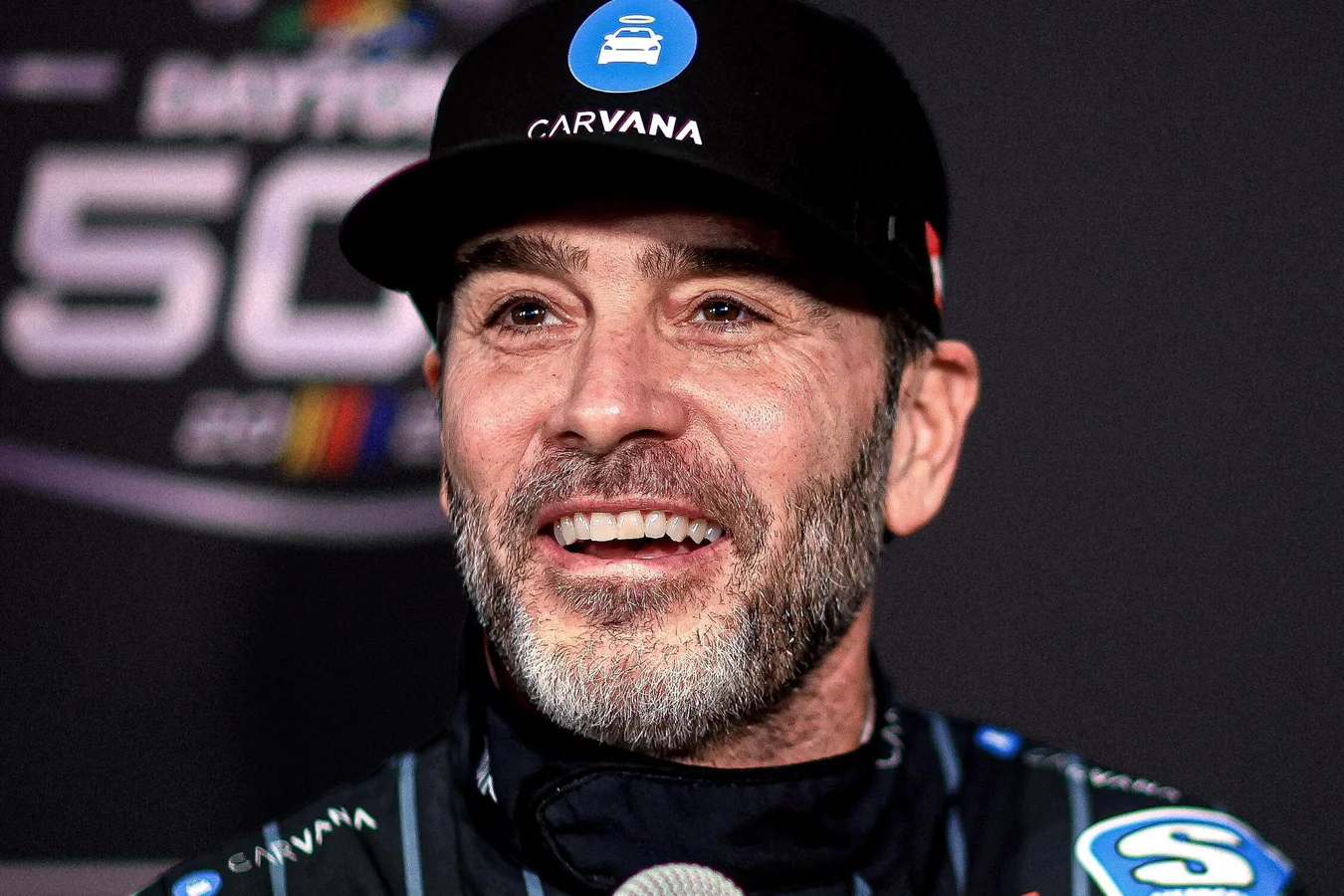Legacy Motor Club, the Toyota-backed NASCAR team owned by seven-time champion Jimmie Johnson, has completed the acquisition of a charter from Rick Ware Racing. This agreement advances Johnson’s goal to expand Legacy Motor Club to a three-car team starting in the 2026 NASCAR season, underscoring a significant development in his ownership strategy.
The transaction followed a contentious legal dispute involving both parties. Johnson’s team took legal action against Rick Ware Racing, claiming the latter reneged on a prior deal. Rick Ware Racing had planned to lease one of its two charters for the 2026 season to RFK Racing, a move strongly contested by Legacy Motor Club. After negotiations, the teams reached an undisclosed settlement that resolved the conflict and secured the charter transfer.
“‘I met with both Jimmie (Johnson) and Cal Wells recently, and we came to an agreement to sell and transfer a charter from RWR to Legacy Motor Club,’ said Rick Ware. While the matter has been resolved amicably to the satisfaction of both parties, the terms of the settlement remain confidential,” Jayski wrote.
Options for Legacy Motor Club’s Expanded Operations
With the new charter in hand, Legacy Motor Club now holds the option to field a third full-time car. Currently, the team runs the No. 42 Toyota driven by John Hunter Nemechek and the No. 43 Toyota for Erik Jones. Expanding to a three-car lineup has been a priority for Johnson as he builds his team’s competitiveness over the coming years.
Alternatively, Legacy Motor Club might opt to lease the charter rather than operating an additional vehicle. Leasing offers a way to generate steady revenue streams without the costly overhead of running a full-time car and crew. This mirrors Rick Ware Racing’s existing strategy, which leases a charter to RFK Racing, allowing drivers like Ryan Preece to compete full time alongside Brad Keselowski and Chris Buescher.

Jimmie Johnson’s Journey from Driver to Team Owner
The 2026 season will mark Johnson’s fourth year serving as an executive at Legacy Motor Club. After retiring from full-time NASCAR competition in 2020, he spent the subsequent two years competing in the IndyCar Series. His transition from driver to team owner represents a notable shift in his motorsports career, emphasizing long-term investment in NASCAR’s future.
Jimmie Johnson’s Likely Part-Time Return to NASCAR
Beyond team ownership, Johnson has indicated a strong chance of returning to NASCAR racing in 2026. He is particularly focused on competing in the new road course event at Naval Base Coronado in California, replacing the Chicago Street Race on next year’s schedule. Johnson stressed that Legacy Motor Club intends to secure sponsorship support to fund any part-time entry he might field.
“Try, 100%. That I end up there. 99% chance.” – Jimmie Johnson, during an interview on the Never Settle Podcast with Marty Smith
“If we couldn’t sell it… which I think we’ll sell it,” he added. – Jimmie Johnson, Never Settle Podcast
Since joining Legacy Motor Club in late 2022, Johnson has made occasional starts in the No. 84 Toyota Camry. Despite modest performance in his initial seasons, he achieved a breakthrough result earlier this year with a third-place finish in the prestigious Daytona 500, demonstrating his continued competitiveness as a driver.
New NASCAR Venue Brings Fresh Challenges and Opportunities
The Naval Base Coronado road course will feature prominently in the 2026 NASCAR season calendar, replacing the three-year run of the Chicago Street Race. Scheduled from June 19 to June 21, this event will host competitions across all three national NASCAR series. This venue introduces new strategic and racing challenges that teams and drivers, including Legacy Motor Club and Johnson himself, will have to navigate.
Implications of the Charter Acquisition for NASCAR and Legacy Motor Club
The acquisition of the charter solidifies Legacy Motor Club’s expansion ambitions and deepens Johnson’s involvement in NASCAR beyond driving. By potentially adding a third full-time car, the team positions itself for greater competitive presence and influence. Should Legacy Motor Club choose to lease the charter instead, it would follow a financial model increasingly seen in NASCAR’s modern landscape, balancing competitive aspirations with operational costs.
For Johnson, the charter acquisition and his expected part-time return signal a continued investment in the sport during a transitional phase in NASCAR’s history, including schedule changes and evolving competition formats. Legacy Motor Club’s moves will be closely watched by fans and industry insiders as indicators of how former champions turn their experience into lasting team success.
